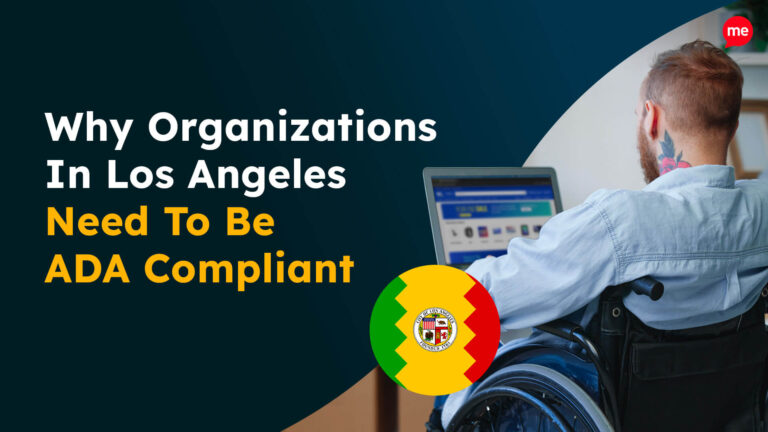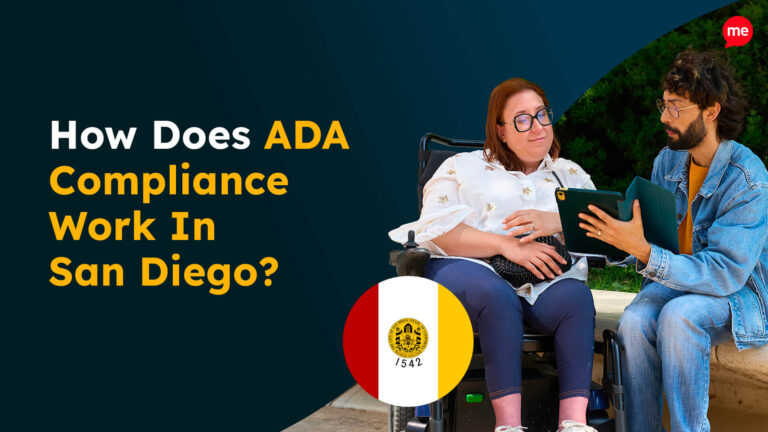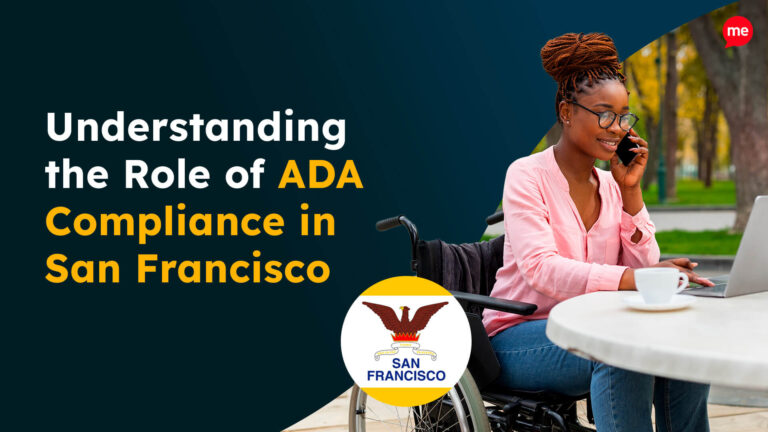The Department of Justice (DOJ) has made a significant update to the Americans with Disabilities Act (ADA), mandating that all state and local government digital content be fully accessible. This ruling is not just a guideline—it’s a legal requirement with serious consequences for non-compliance. Here’s what you need to know to stay ahead and avoid penalties.
Why Digital Accessibility Matters More Than Ever
The DOJ’s recent ruling has set a new standard for digital accessibility. It’s no longer just advisable for government agencies to make their digital services accessible; it’s now mandatory. The updated rule specifies that all web content and mobile apps provided by state and local governments must comply with the Web Content Accessibility Guidelines (WCAG) 2.1 Level AA.
Understanding and adhering to WCAG 2.1 Level AA is critical. These guidelines ensure that your digital content is accessible to all users, including those with disabilities. With the increasing reliance on digital services, particularly in the public sector, ensuring accessibility is not just about compliance—it’s about inclusivity and providing equal access to all constituents.
Despite the clear importance of this update, many agencies are still lagging in meeting these standards. The time to act is now, and the consequences of inaction are severe.
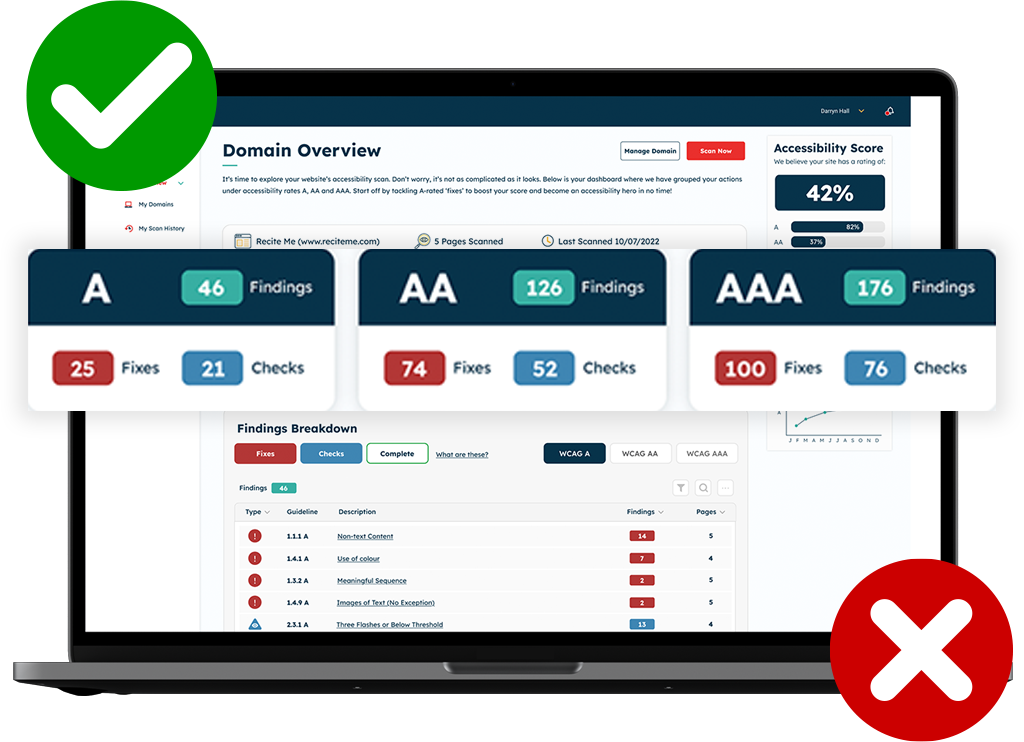
Free WCAG Compliance Check of your Website
Detecting WCAG and ADA Compliance issues has never been easier than it is now. At Recite Me we offer a free automated scan of your website homepage. This will identify and highlight any non-compliance on your website. Followed by recommendations on how to implement the necessary changes to improve your websites accessibility score and standing.
What the New Rule Means for You
Under the new DOJ rule, compliance is required within specific, strict timeframes:
- Agencies serving populations of 50,000 or more must meet these standards within two years from the rule’s publication date of April 24, 2024. Enforcement begins on April 24, 2026.
- Agencies serving smaller populations have three years to comply. Enforcement begins on April 26, 2027.
These deadlines are non-negotiable. Failure to meet them could lead to significant legal and financial repercussions, including fines and disciplinary actions.
The DOJ has provided several resources to help you get started:
- Fact Sheet: A summary of the rule and its requirements in plain language.
- Small Entity Compliance Guide: Practical steps for achieving compliance, including advice on setting up accessibility policies.
Additionally, the World Wide Web Consortium (W3C), the organization behind WCAG, offers extensive resources to help you understand and implement these standards.
Take Action Now: Steps to Ensure Compliance
1. Educate Your Team
Ensure that everyone in your organization, from leadership to front-line staff, understands the new accessibility requirements. Integrating accessibility into every stage of your digital services is crucial. Recite Me offers a free website accessibility training course to get your team up to speed.
2. Conduct an Accessibility Audit
Use the Recite Me Accessibility Checker to perform a free audit of your website. This tool will identify where your digital content falls short and provide a clear, actionable path to compliance.
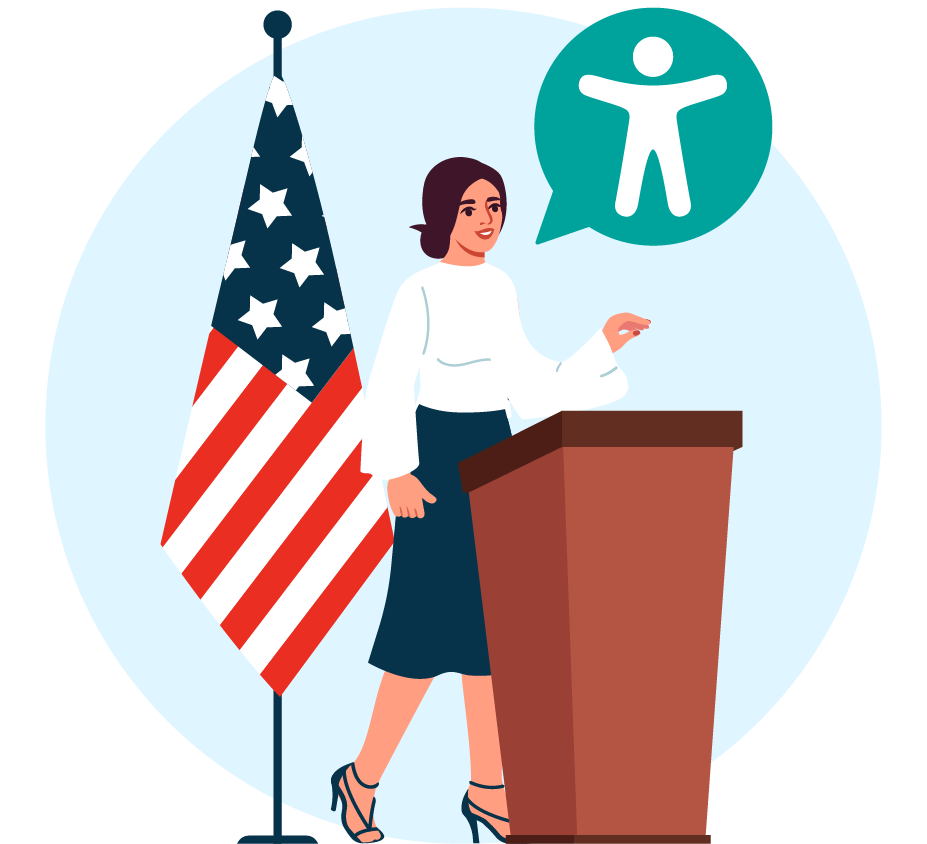
3. Develop a Comprehensive Action Plan
If your website or mobile apps require significant updates to meet WCAG 2.1 standards, prioritize your efforts by focusing on website page templates, key user journeys, and high-traffic pages. This task can be time-consuming, so it’s crucial to begin immediately. Recite Me can help you structure this process efficiently.
4. Integrate Accessibility Early
Don’t wait until the end of the design process to address accessibility. Make it a core part of your digital strategy from the outset, including in your procurement processes. With the Recite Me Accessibility Checker, we guide you through an auditing checklist and use AI scanning of webpages to ensure everything is accessible before it goes live.
Why This Matters Beyond Compliance
While the threat of fines and disciplinary action is a real concern, the primary focus should be on the ethical imperative of digital accessibility. Ensuring your services are usable by everyone, regardless of their abilities, is the right thing to do. It promotes inclusivity and provides equal access to all constituents.
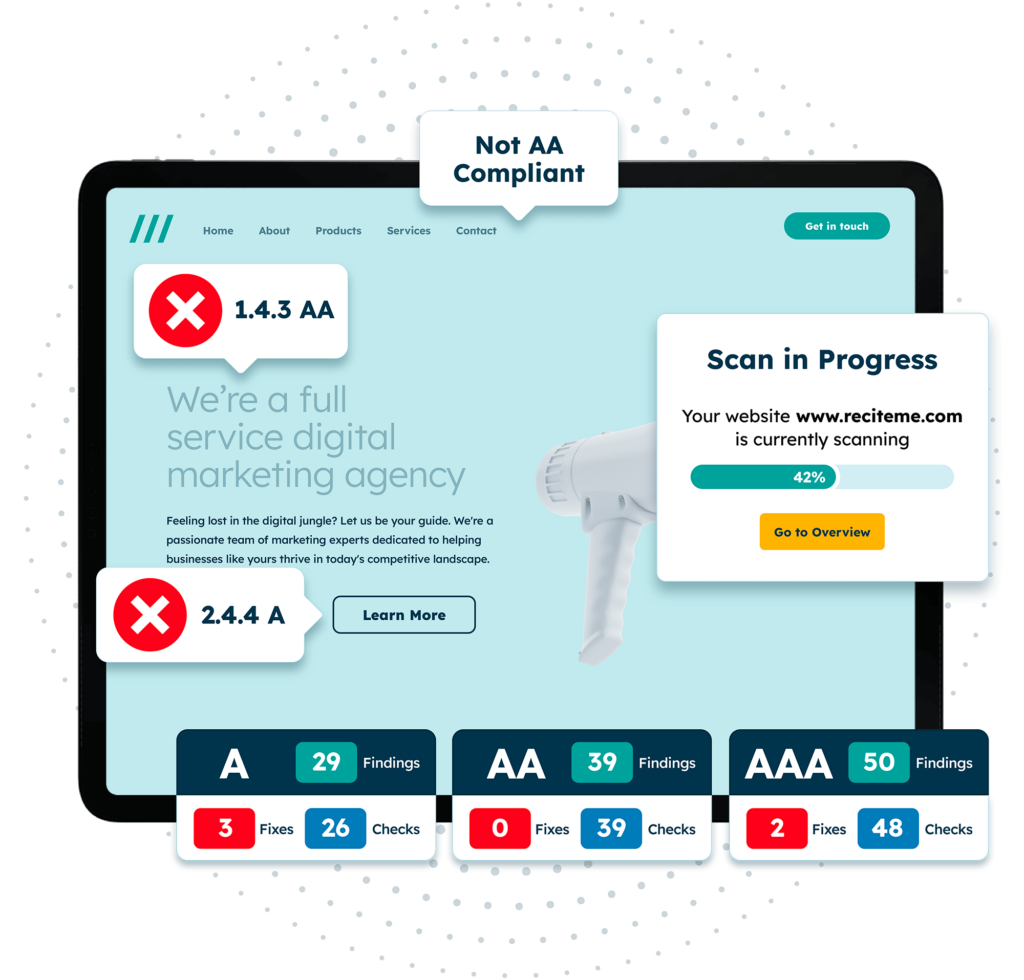
How Recite Me Can Help
At Recite Me, we specialize in helping government agencies meet these new DOJ requirements quickly and effectively. Our comprehensive accessibility platform is designed to make your digital content fully accessible, ensuring compliance with the latest standards while also addressing the needs of your diverse community.
Our Solutions Include:
- Accessibility Audits: Identify compliance gaps and receive a detailed action plan.
- Customizable Toolbars: Enhance user experience with text-to-speech, translation, and styling options.
- Ongoing Support: Continuous guidance to ensure your digital assets remain accessible as standards evolve.
Case Study: Enhancing Accessibility for The City of Denton
One of our recent projects involved partnering with the City of Denton to transform its digital presence. Within months, we helped them achieve full WCAG 2.1 Level AA compliance, improving accessibility for thousands of users.

The Impact of Accessibility
Data shows that websites with accessible design see increased user engagement and satisfaction. By prioritizing accessibility, your agency can better serve all constituents, leading to greater community trust and participation.
Ready to Take the Next Step?
Don’t wait until it’s too late – take proactive steps today to ensure your digital services are accessible to all. Explore our resources, including the:
Reach out to Recite Me today to learn how we can support you in achieving full compliance and creating a more inclusive digital environment for everyone.

